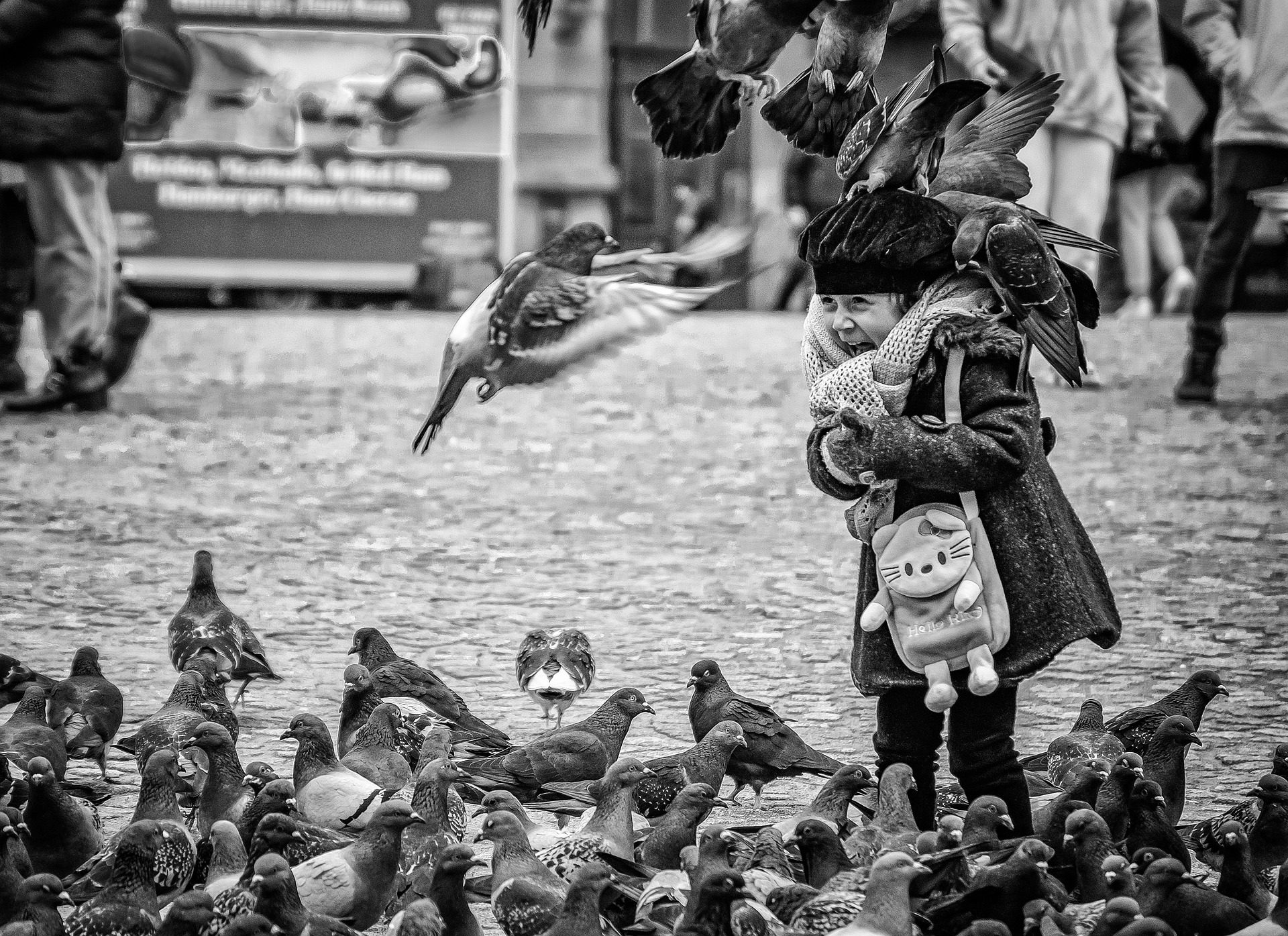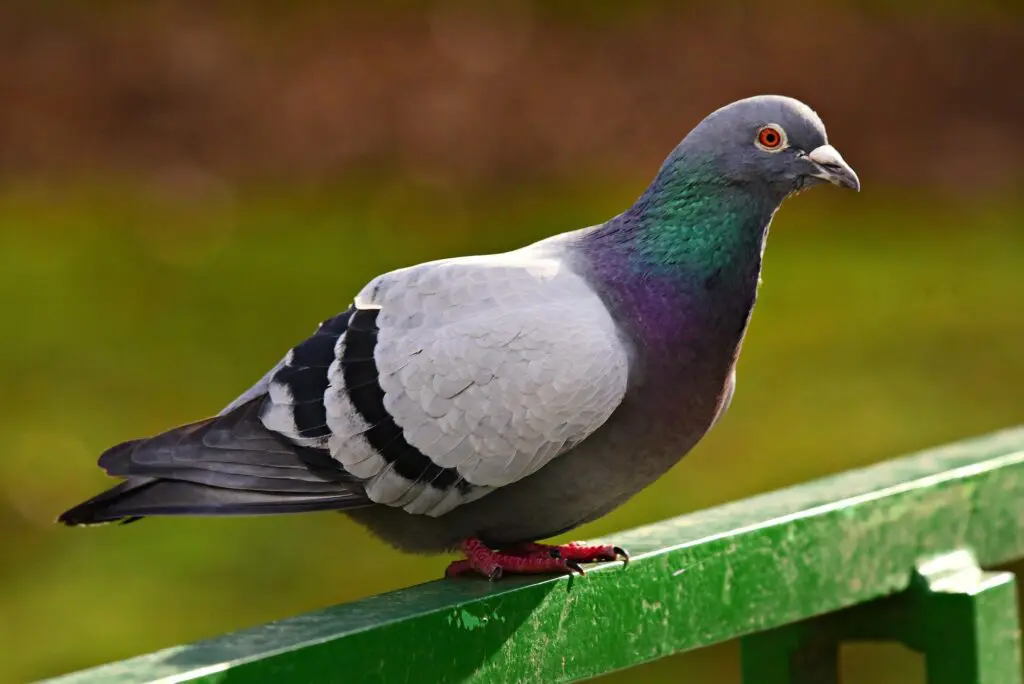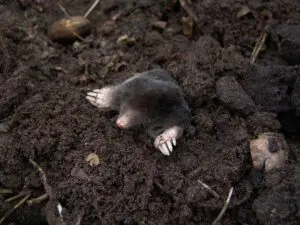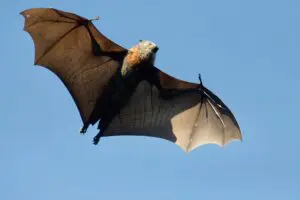

Did you know pigeon droppings were once considered a valuable fertilizer? That trend obviously didn’t last into modern times (probably for good reason), but if you think pigeon-poop fertilizer sounds crazy, just wait until you read these next facts about pigeons!
Pigeons May Have Been the First Domesticated Bird
People have been keeping pigeons as pets for a very long time. In fact, pigeons are portrayed in Mesopotamian art from as far back as 4500 BCE! Scientists believe these pieces of art are the first recorded images of pigeons. Additionally, pigeons have been a significant food source for thousands of years. These facts have led to the theory that pigeons may have been the first birds humans ever domesticated.
Beyond food, pigeons have also played a vital role in human history. In ancient times, pigeons were revered for their loyalty and navigation skills, symbolizing peace and prosperity. The domestication of pigeons is not only one of the earliest examples of animal-human relationships but also a testament to the adaptability and resourcefulness of this remarkable bird. This aspect of pigeon history highlights how humans and pigeons have shared a mutually beneficial bond for millennia.
Some Pigeons Are War Veterans
During the 20th century, it was common for countries to have flocks of homing pigeons for military use. The birds could quickly deliver important messages between bases or across enemy lines. Pigeons are credited with saving thousands of lives through the information they so diligently delivered, commonly known as pigeon post.
One pigeon named G.I. Joe saved British troops from a bombing with just 5 minutes to spare, earning him a medal of honor. Another famous pigeon, Cher Ami, delivered a total of 12 important messages for the U.S. military during WWI. On his last mission, Cher Ami was shot in the breast and still managed to fly for another 25 minutes, completing his mission and saving the lives of 194 stranded soldiers.
The courage and reliability of these pigeons underscore some of the good things about pigeons that are often overlooked. Their contributions to military efforts are an enduring part of pigeon history and a testament to their intelligence and determination.
Pigeons Save Lives Outside of the Military as Well
Historically, pigeons were released from sinking boats to send for help. Pigeons have also been trained to aid in rescuing people lost at sea. They locate the people who are stranded and notify rescuers of the location. They are perfect for this job because, in addition to having great eyesight, they can detect the ultraviolet light that surrounds the people in the water. Historically, pigeons were released from sinking boats to send for help. Pigeons have also been trained to aid in rescuing people lost at sea. They locate the people who are stranded and notify rescuers of the location. They are perfect for this job because, in addition to having great eyesight, they can detect the ultraviolet light that surrounds the people in the water.
This ability to assist in life-saving operations is one of the most fascinating characteristics of a pigeon, showcasing not only their sharp senses but also their versatility. In recent years, their extraordinary vision and adaptability have even inspired research into advanced rescue technologies modeled after their unique skills.
Pigeons Are Navigation Experts
Believe it or not, pigeons can find their way home from an astounding 1,300 miles away! What’s more, they have proven that they can do so after being transported in complete isolation to a location they’ve never been. The cages were even rotated during transportation to prevent the birds from knowing which direction they were traveling in.
Scientists do not fully know how pigeons manage to find their way back when they have no visual, olfactory, or magnetic clues to aid them in knowing their location. However, they now believe that pigeons actually have compass and map mechanisms that help them navigate. While the map mechanism remains a mystery, it is likely that the compass mechanism relies on the sun’s position. This ability to navigate over vast distances makes pigeons one of the most skilled animals in the natural world.
These interesting facts about pigeons highlight just how advanced their sensory and spatial abilities are, often raising the question, “Are pigeons smart?” The answer is a resounding yes.

Pigeons Are Fast
Pigeons are very fast birds, which is one of the reasons they make great messengers. Their speed also makes them great racers. Pigeon racing is a surprisingly lucrative business, and racing pigeons can be quite expensive - the most expensive pigeon ever sold cost nearly $1,900,000!
Racing enthusiasts admire the sheer athleticism and endurance of pigeons, viewing them as some of the most capable athletes in the animal kingdom. The speed of pigeons not only cements their place as efficient messengers but also makes them a key focus in both historical communication systems and modern sports.
They Are Surprisingly Clean Birds
Contrary to popular belief, pigeons are very clean birds and the risk of getting any disease from a pigeon is extremely low. Unlike their reputation as pests, pigeons spend a large portion of their day grooming themselves.
Pigeons are also highly organized in their social and nesting habits, often sticking to specific areas for roosting. This behavior minimizes mess and keeps their living spaces relatively tidy. These good things about pigeons remind us that their negative stereotypes are often unfounded.
They’re Really Good at Multitasking
One of the lesser-known fun facts about pigeons is their ability to multitask with incredible efficiency. Studies have shown that pigeons can switch between different tasks faster than most mammals, including humans! This skill is yet another example of how pigeons are smart and capable of performing complex mental operations.
They Can Recognize Mirror Reflections
Most birds cannot recognize their own image, but pigeons can identify themselves in mirrors. This ability is incredibly rare in the animal kingdom, making pigeons one of the few species capable of self-recognition. It’s yet another one of the interesting facts about pigeons that emphasizes their cognitive abilities and self-awareness.
What to Do if You Have a Pigeon Problem?
Although pigeons are fascinating creatures, they can sometimes cause problems, particularly in urban environments. If you have an issue with pigeons roosting on your property, consider humane methods of prevention, such as installing bird spikes, using reflective surfaces to deter them, or setting up pigeon-proof netting.
If the problem persists, it’s time to call in the experts. At Excel Pest Services, we specialize in effective and humane pigeon control solutions. Our team is equipped to handle pigeon problems of any scale, ensuring your property remains clean and pest-free. Contact us today for a consultation and let us help you address your pigeon problem quickly and ethically.
These facts about pigeons demonstrate that they are far more than just common city birds. From their role in pigeon history to their life-saving contributions and remarkable intelligence, pigeons are truly unique creatures. Their ability to navigate, multitask, and even recognize themselves in mirrors highlights some of the many good things about pigeons that often go unnoticed.
However, if pigeons are causing issues on your property, remember that help is just a call away. Excel Pest Services offers professional and humane pigeon control services to keep your space safe and pest-free. Whether it’s prevention or removal, we’re here to help. Contact us today for more information!
Whether you’re asking, “Do pigeons have ears?” (yes, they do!) or marveling at their ability to detect cancer, pigeons continue to amaze us with their wide array of talents and contributions. These fun facts about pigeons remind us that even the most unassuming animals can have extraordinary qualities.






